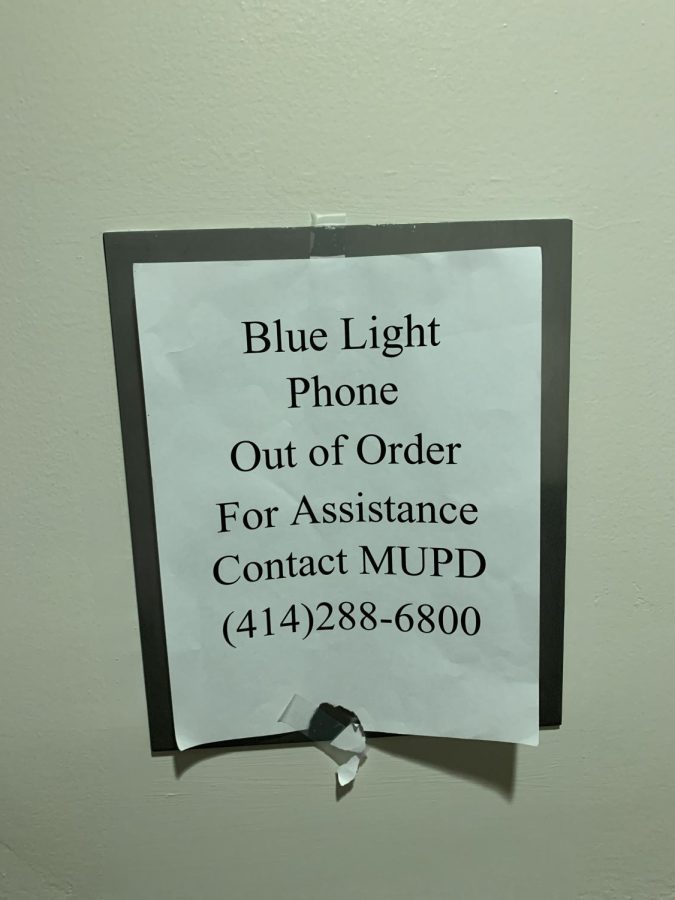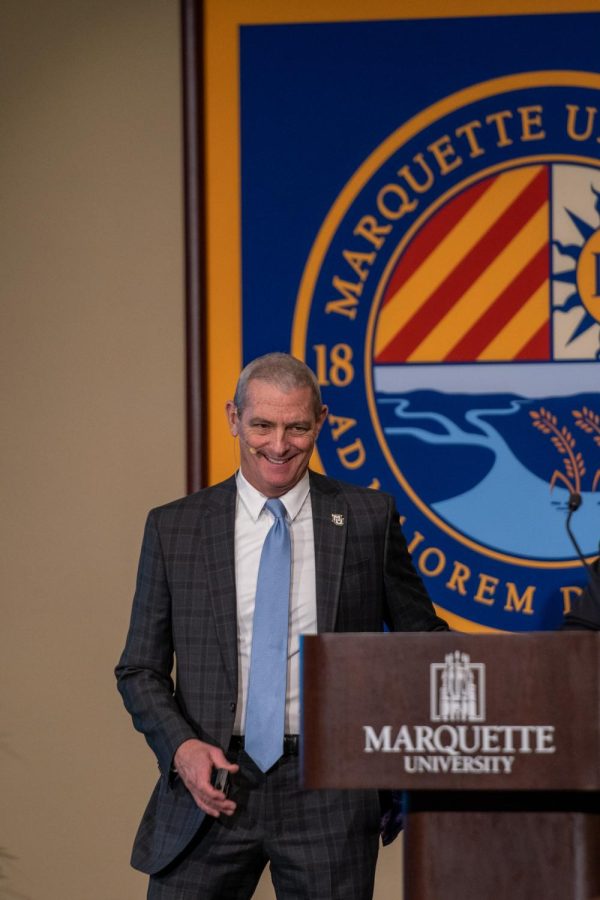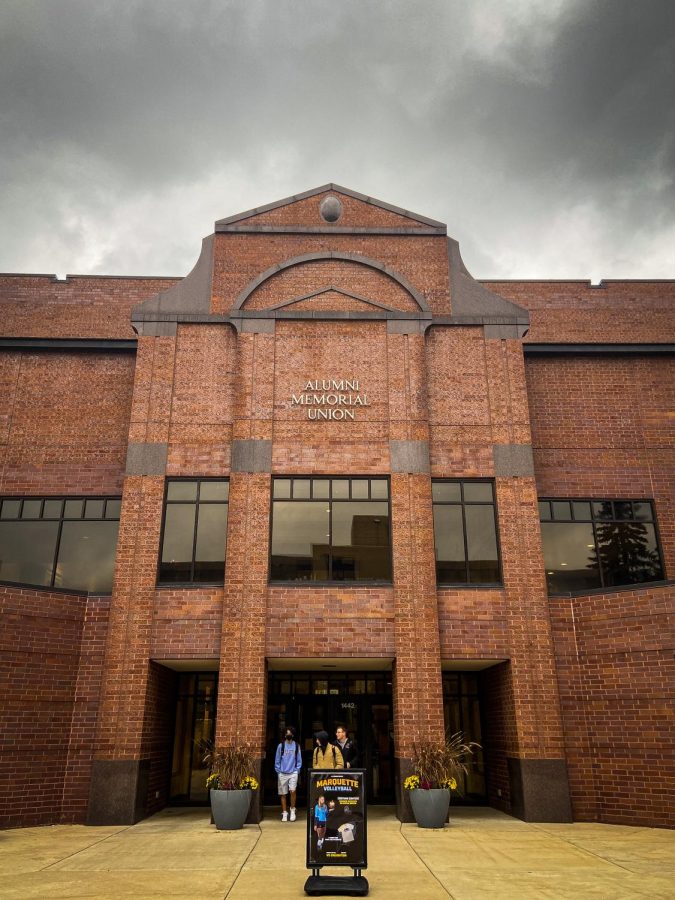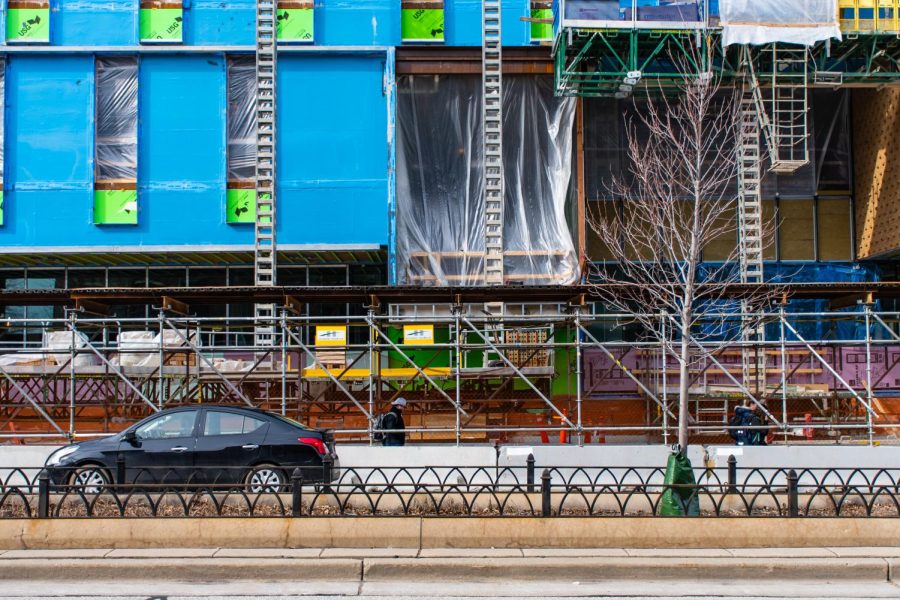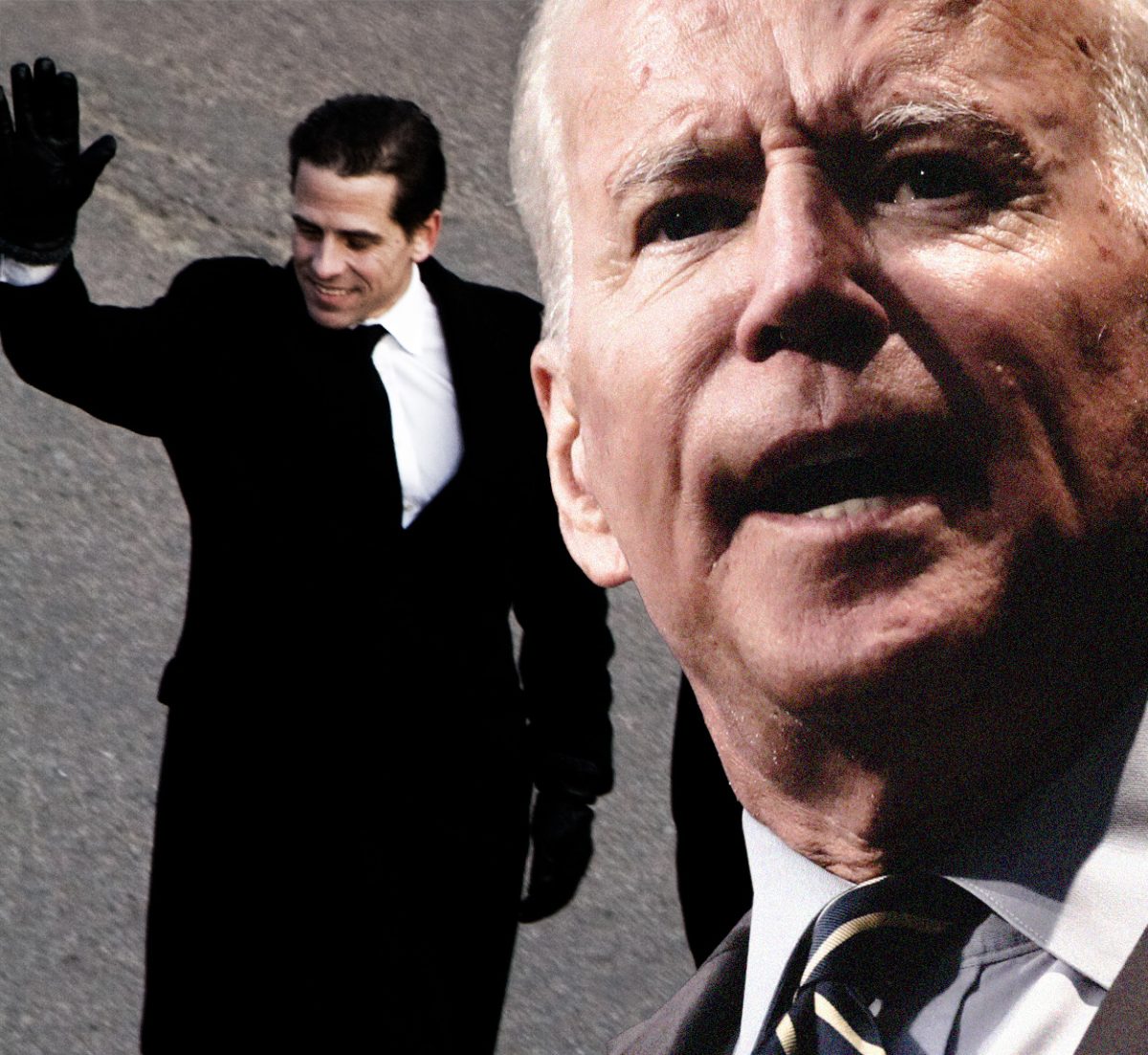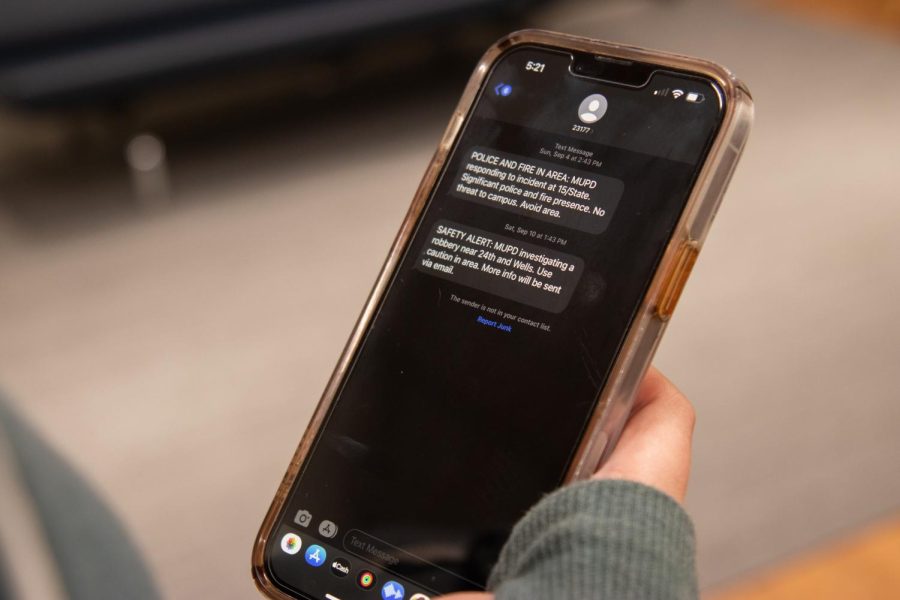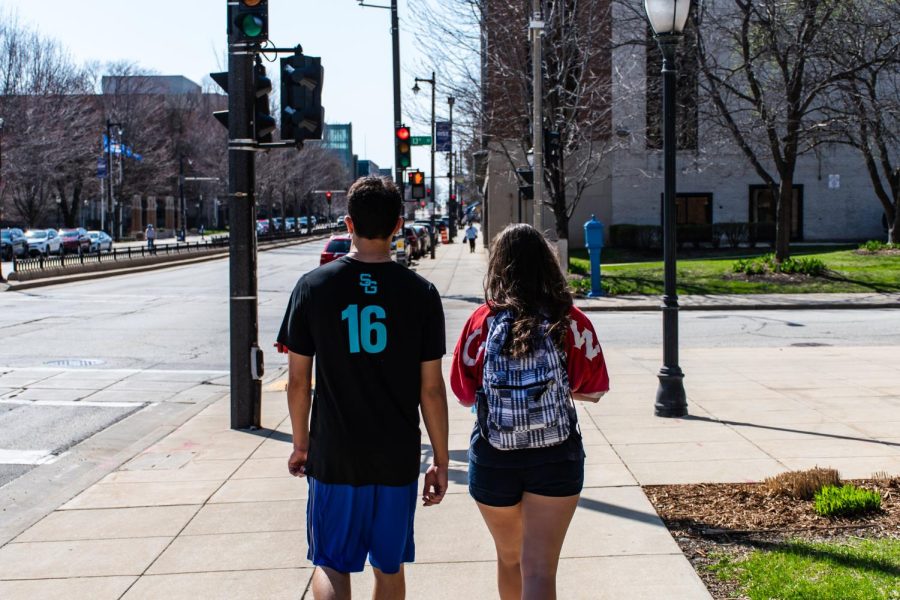With an increase in reported robberies on Marquette University’s campus, it is imperative that Marquette University Police Department ensure it is prioritizing the safety and well-being of Marquette students.
During the week of Oct. 11, there were three safety alerts from MUPD regarding reported robberies on campus: A robbery near 18th Street and Kilbourn Avenue Tuesday, Oct. 12, a robbery near 18th and Wells Streets Wednesday, Oct. 13 and a robbery near 17th Street and Kilbourn Avenue Thursday, Oct. 14. The locations of these recent robberies are near off-campus apartments where students live.
Edith Hudson, MUPD police chief, issued a statement Oct. 15 responding to the increase in the recent reported robberies on campus. The statement outlined ways in which MUPD is planning to take action, such as adding patrols within the MUPD patrol zone, especially during the night, creating a “directed patrol mission” that adds MUPD officers near the impacted areas and working with Milwaukee County law enforcement groups to gather information about the recent robberies throughout the Milwaukee area.
In her statement, Hudson also advised members of the Marquette community to take several safety measures such as using the LIMO van services whenever possible, especially at night, walking in groups and being aware of surroundings at all times and using the blue light phones on campus to call for assistance. Hudson also advised students to download the EagleEye app that has a BlueLight feature and can connect students to MUPD and to immediately report suspicious behavior to MUPD.
While MUPD should be commended for communicating with the Marquette community about how it’s responding to these robberies, many of these resources are not sufficient enough.
For example, LIMO van services can be a great resource on campus to prevent students from walking by themselves, but it is not always a reliable alternative. The wait time for a LIMO can often be unpredictable. In the time that they have to wait for a LIMO, many students may feel it is just easier and quicker to walk back to their homes. Students shouldn’t have to choose between waiting or walking; they shouldn’t have to decide between prioritizing their safety or compromising their time.
A reason for the inconsistency in pick-ups by the LIMOs could be due to a lack of drivers. Student drivers run the LIMO services, operating from from 5 p.m. to 3 a.m. every day of the year, according to the Department of Campus Safety webpage.
Students may not want to work for the LIMO services due to the late hours, and they may not want to risk their own safety while driving and opening the van doors to people on the street — they don’t know who is going to try and get in the vans, even though students are only supposed to be allowed in the LIMOs and have to show identification through their COVID Cheqs, not all drivers follow the protocol.
On the other hand, students may not feel comfortable taking the LIMOs due to some of the inconsistencies with drivers. According to the Department of Campus Safety webpage, “All student drivers undergo an intense training process to ensure passenger safety. We strive to provide speedy service, but our priority is your safety. Therefore, LIMO’s do not simply drop off passengers, but wait until they’ve arrived safely in their home, car, or building.”
While LIMO drivers are supposed to follow these protocols, it is inconsistent, as not all drivers wait for students to enter their buildings — some drive off as soon as the student exits the van.
Additionally, not all LIMO drivers are following COVID-19 safety protocols, such as wearing a face mask to stop the spread of COVID-19 on campus. One member of the Wire editorial board got on a LIMO last week and was frustrated because the LIMO driver wasn’t wearing a face mask. Students shouldn’t have to feel unsafe or worried about their health and well-being while in the LIMO because the student-driver is not following COVID-19 guidelines.
MUPD must ensure student-drivers are following the protocols that they are trained to fulfill in order to protect the safety of their peers. If MUPD cannot do this, it should consider hiring more nonstudent-drivers, as it did with the GoRiteWay coach van services last year that were used to adhere to COVID-19 guidelines to ensure social distancing on campus. Hiring more nonstudent-drivers could be an alternative to not only increase the number of LIMO employees but also hire Milwaukee community members who could prioritize the job.
Another resource that MUPD suggested students take advantage of if they feel unsafe on campus are the Blue Light phones. Although there are over 450 Blue Light phones on campus and off campus within several neighborhoods near Marquette’s campus, they are also not a reliable resource for students.
Many Blue Light phones are broken, such as the one on the fifth floor of the McCabe Apartments. Blue Light phones are also not in all areas that students live in. MUPD should check all the Blue Light phones on a frequent basis to make sure they work and can be accessed by Marquette students.
MUPD must also make sure that their actions don’t make students feel uncomfortable during their patrolling, especially because MUPD is adding more officers near the “impacted” through its “directed patrol mission.” Communicating with students and members of the Marquette community about what they’re doing in those areas is important, as being too present in these areas may make students feel tense or anxious. There is a difference between being present and too present.
While these resources are often unreliable and need attention and updating, MUPD has provided resources to the Marquette community in the past to respond to robberies on campus.
In July, MUPD offered 10 free steering wheel locks to students, faculty and staff who owned Kia or Hyundai cars, which were targeted across Milwaukee over the summer. MUPD should be commended for offering these preventative resources to members of the Marquette community.
Another helpful resource that MUPD provides is the EagleEye app, which is intended to connect students to several MUPD resources like emergency contacts on campus, a mobile BlueLight, a campus map and a safety toolbox. The EagleEye app also can contact students directly with MUPD if they feel unsafe, and an officer can walk with them to their destination.
Moving forward, MUPD should continue to provide accessible resources and implement preventative measures to ensure that members of the Marquette community are not only equipped with the resources to feel safe on campus but also with the knowledge to be preventative and aware of their surroundings.
Editorial topics by the Marquette Wire are decided at weekly meetings between members of the executive board. The editorial is crafted with leadership by the executive opinions editor. The executive board consists of the executive director of the Wire, managing editor of the Marquette Tribune, managing editor of the Marquette Journal, general manager of MUTV, general manager of MUR and ten additional top editors across the organization.

